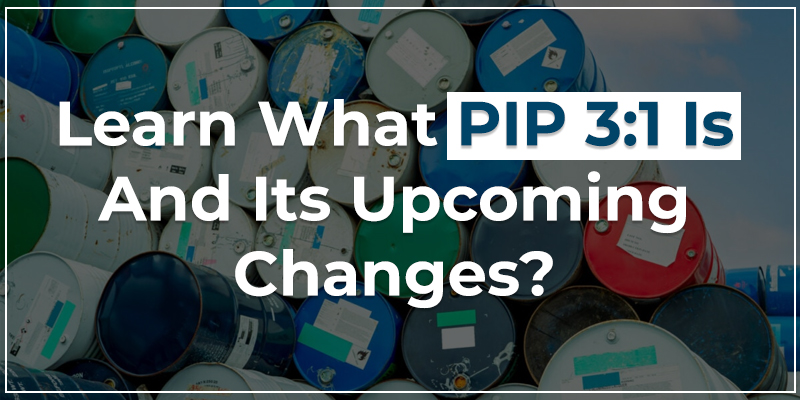
PIP 3:1 is nothing but the Phenol, Isopropylated Phosphate (3:1) compound which has three isopropylated phenyl and one phosphate groups. This compound acts as the primary compound in many substances such as greases, lubricating oils, adhesives, industrial coatings, hydraulic fluid, and other plastic materials. It is also to be noted that PIP (3:1) have very high wear and compression resistance making them to be the hardest and hazardous substance. The United States Environmental Protection Agency (U.S. EPA), added PIP (3:1) under the Toxic Substances Control Act (TSCA) in regard to its toxicity and there would be an amendment for PIP (3:1) where the supply chains need to abide, similar to REACH compliance. The U.S.EPA clarifies why the substance was added under the Regulation of Persistent, Bioaccumulative, and Toxic Chemicals Under TSCA Section 6(h) based on its characteristics such as toxic (PBT) chemical, persistent, and bioaccumulative. Hence, in this blog, we will look into the things that you should know about PIP (3:1) and what were the changes in the compliance.
PIP (3:1) And Its Current Status:
As mentioned earlier, the U.S federal government began to regulate the compliance among the distribution and commercial process of products in the United States which included PIP (3:1). Hence, the Federal Government was keen in addressing and regulating the products that are free-from PIP (3:1). However, due to globalization and the complexity in the supply chain, it is challenging to filter the products or articles that are free from PIP (3:1).
As it is already challenging to identify the PIP (3:1) in the products, the Environmental Protection Agency (EPA) has made an announcement to enforce compliance for PIP (3:1) on the supply chain and to submit the obligations for the same. However, the companies can now have breathing space as the administrator of EPA Michael S. Regan has signed the final on 3rd March 2022 to extend the date for compliance enforcement. Therefore, the supply chains have sufficient time till 31st October 2024, to streamline their products and to identify the PIP (3:1) in the same.
What’s Next In PIP (3:1)?
It is also to be noted only the compliance enforcement for PIP (3:1)is extended till 31st October 2024 but the supply chains are expected to submit their required documentation as of March 08, 2023.
Now, the supply chain or company may expect PIP (3:1) compliance enforcement and prepare themselves for the new changes that would certainly happen in the future. It is to be noted that EPA would create separate guidelines on the PIP (3:1) including products with Persistent Bioaccumulative Toxic (PBT) chemicals which is also expected to be regulated from 2023. The EPA also stated that there would be guidelines based on the surroundings of PIP (3:1) for reducing environmental impact.
Hence, the companies should be taking the necessary precautions and measures to prevent market loss and distribution.
Therefore, to make your supply chain compliance free, approach Sunstream to avail compliance-related services.



 +1.585.935.7123
+1.585.935.7123 +91-804-148-6861
+91-804-148-6861